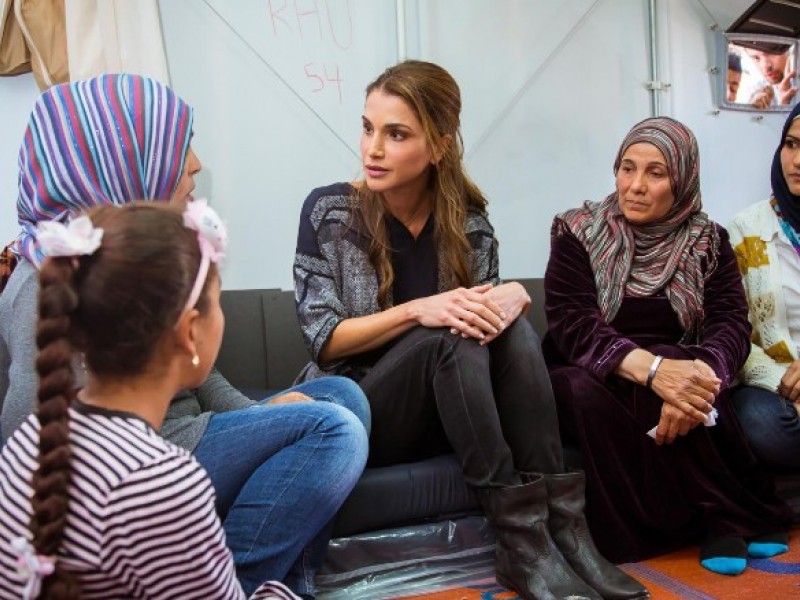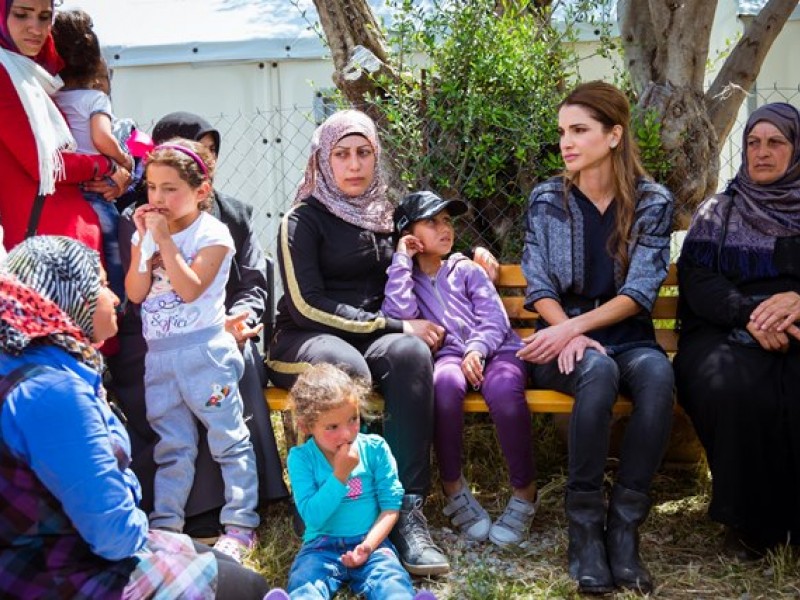Gaza: The Makings of a Modern Day Dystopia

dys·to·pia [ \dis-ˈtō-pē-ə\] noun: an imaginary place where people are unhappy and usually afraid because they are not treated fairly; an unpleasant future where people are often dehumanized; a nightmare world characterized by human misery, squalor, oppression, disease and overcrowding.
______
Typically, dystopian societies are depicted through the pages of novels, like The Hunger Games and Divergent. They give us glimpses into distorted societies where justice and freedom are suppressed; where deprivation is a way of life; and lives are dispensable. They ask us to imagine a society where people are pushed to the limits of what they can endure -- and, often, killed if they can't.
But it's just fiction, right? After the last page, it ends.
Wrong.
The most disturbing dystopian narrative of our time is no work of fiction. It's a real place with real people.
It's Gaza. The most tragic place to live on earth.
Where some people in the world battle poverty or violence or prejudice or intimidation or hunger or lack of healthcare or freedom of movement or imprisonment or mass unemployment or constant surveillance or insecurity or deprivation of basic essentials or hopelessness or poor education or enforced isolation or disregard for their human rights or the pain of losing loved ones, Gaza's more than 1.8 million inhabitants battle them all, every day.
In full view of a, largely, indifferent global community.
Women. Children. Infants. The elderly. Those living with disabilities. The innocent. They battle all these injustices every day because, for the last eight years, they have existed -- not 'lived' -- under an Israeli-imposed siege.
A 17-year-old Palestinian boy, detained in an Israeli prison, described the everyday misery that Gazans endure.
"It's like being a shadow of your own body, caught on the ground, not being able to break out. You see yourself lying there but you cannot fill the shadow with life."
Simply put: a slow death.
Unless you've lived day in, day out amidst the suffocating siege and the onslaughts, it's impossible to understand the despair that Gazans endure. Don't forget: 70% of Gaza's population are refugees.
I cannot hope, in words alone, to do their suffering justice. All I can offer are snapshots of their existence.
Imagine being imprisoned on a barren sliver of land, barely 25 miles long and between three and seven miles wide.
Imagine your child needs urgent medical care that Gaza's clinics can't handle. Day after day, you wait at the border crossing not knowing if this is the day you and your child will be allowed through to seek the care you need.
Imagine bringing up children with no access to water, a leaking sewage system, and electricity for barely half the day. Or relying on UNRWA for food parcels to keep your family alive.
And now, imagine, the people of Gaza live with daily bombardments as well.
More than a quarter of those killed in the last two weeks were children: one hundred and sixty one. Hundreds more maimed and orphaned. Tens of thousands of families shattered and displaced.
Imagine sitting around the dinner table with your family and being given minutes to evacuate before your home is bombed. Missiles level your home. Irreplaceable photos of your grandparents, gone. Pictures your children drew when they were young, destroyed. Identity papers, lost. Your personal history, erased.
Or imagine trying to save lives in a hospital with barely any medical supplies and only rusting instruments. Your shoes stick to the floor with blood. And then the hospital is bombed.
Gaza is in a state of trauma.
All the people of Gaza want is what each one of us wants. The opportunity to live a normal life with dignity and security, and build a future in which their children can thrive, dream and fulfill their potential. They must be allowed to do this.
First, there must be a ceasefire. But, that is not the only solution. We cannot allow a return to the hellish status quo: a daily battle for survival. There must quickly follow a dedicated global effort to return life to the shadows of Gaza. Crossings, open. Rights, recognized. Freedom, granted. Infrastructure, repaired. Trade links, restored. Schools, equipped. Hospitals, renovated. Scars must heal. Hope must blossom.
But it won't happen without the collective efforts of the global community. They must insist on a life of dignity for the people of Gaza. Each one of us can do something. Advocate. Raise awareness. Reject violence. Donate to UNRWA.
Remaining silent in the face of this endless injustice makes our global community no better than the peanut-crunching crowd in the arena at the Hunger Games, oo-ing and aah-ing and shaking their heads at each new trial and each new death.
Are we going to stand back and spectate while the ugly foundations of a modern day dystopia are laid in front of our eyes? Or will our common humanity unite us and compel us to act to help save the people of Gaza?
In saving them, we save ourselves.
Featured
Queen Rania's official website
This website does not support old browsers. To view this website, Please upgrade your browser to IE 9 or greater
Your browser is out of date. It has known security flaws and may not display all features of this and other websites. Learn how to update your browser



